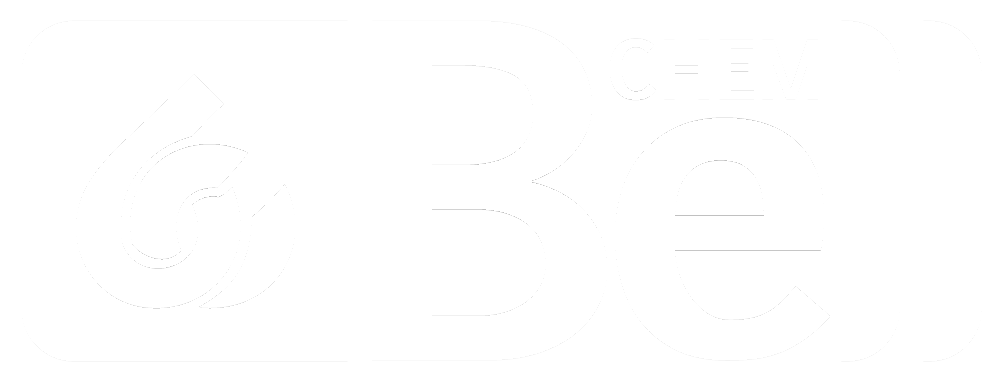
NEWS
Oxygen Scavengers
While we consider oxygen extremely important for life, it has only been quite recently in the history of the world that oxygen moved from the category of “toxic chemical” to “life-giving gas,” both classifications due to its ability to chemically bond with so many elements. Today, there are still instances where oxygen causes extreme damage. In chemistry, a scavenger is a substance that removes or de-activates impurities. Oxygen scavengers remove oxygen or prevent an oxidation reaction--the transfer of electrons from one chemical to another. As it relates to oxygen, an oxidation reaction forms an oxide. Because of its electronegativity, oxygen is highly reactive and quickly bonds to almost every other element when exposed to elevated temperatures, forming an oxide of that element. However, a number of elements form oxides at standard temperatures, most readily identified as iron (III) oxide (Fe2O3)--commonly referred to as “rust”. Oxygen scavenging negates the presence of oxygen in normal atmospheric conditions, stanching its ability to corrode or form oxides.
Oxygen scavenging is a simple process that occurs when an organic chemical--which tends to have a slightly negative charge--comes in contact with a slightly positive oxygen molecule. In essence, science has caused oxidation to occur with a compound at our discretion rather than nature’s. Oxygen is absorbed from the surrounding area and its ability to corrode is negated. Two oxygen scavengers used in this manner are the water treatment chemicals: sodium hydrogen carbonate and ascorbic acid. Adding either of these chemicals, or any other oxygen scavenger, negates oxygen’s corrosive properties. Carbohydrazine is another oxygen scavenger known for its ability to convert iron (III) oxide (ferric oxide) to iron (II) oxide (ferrous oxide). In order to control the corrosive properties of oxygen, it is imperative to introduce oxygen scavengers into a water treatment system. Without water treatment chemical oxygen scavengers, the metals will corrode and cause maintenance difficulties and breakdowns, and, more importantly, the health of consumers will be negatively affected.
If you’re looking for a water treatment chemical supplier, contact Bell Chem. We’re the the leading chemical supply company in Orlando and we’re more than happy to help you in any way that we can. For more information, call 407-339-BELL (2355) today.
Hydrogen Chloride as a pH Conditioner
Obtained from a water treatment chemical supplier, hydrogen chloride has an extremely low pH (around 1.5-2), making it a strong acid. The water treatment process is often presented with situations that demand an added strong acid and hydrogen chloride, which becomes hydrochloric acid when it forms an aqueous solution with water, fills this role nicely. Hydrogen chloride’s role in the water treatment process is to lower the pH of basic (alkaline) water. When water is too alkaline, corrosion in pipes and equipment occurs, and, more significantly, the health of anyone drinking the water is negatively affected. Elevated pH levels also causes scale formations in water treatment equipment, eventually lead to pinhole leaks in copper pipes, decrease water heater efficiency, and stain porcelain.
If you are concerned about the pH balance of your water, specifically if your water is basic, it is important to recognize the signs of alkaline water. Your water will taste bitter, and the telltale blue-green staining caused by the leaching of copper from pipes will be noted on surfaces coming in contact with the water. To remedy this situation, hydrogen chloride is a dependable acid with many benefits. While other strong acids are available, the water treatment chemical, hydrochloric acid, is the least hazardous to handle, the most stable during storage (concentrations of HCl in water remain more constant than other acids), is available as a pure reagent, and it contains non-toxic and non-reactive chloride ions.
To keep your water treatment equipment safe, check the pH frequently. When a strong acid is necessary to counteract a basic pH, rely on hydrogen chloride to work quickly and effectively. If you’re looking for water treatment chemicals or a water treatment chemical supplier, contact Bell Chem at 407-339-BELL (2355) today.
Chlorinated Detergents
Detergents purchased from sanitation chemical suppliers are renowned for their ability to clean. This process begins when detergents break the surface tension of water used to rinse stainless steel, plastic, or any other hard surface. Once water’s tensile strength is relaxed, water is able to penetrate soiled areas on most hard surfaces and remove grime. Adding a chlorinated component to the detergent will also disinfect surfaces as they are cleaned.
Chlorinated detergents sanitize and bleach stainless steel surfaces, floors, and most plastics. Breweries and wineries use chlorinated detergents as part of their post-fermentation cleaning process to remove brewing deposits. Professional painters find chlorinated detergents excellent for washing walls because it can be entirely rinsed off the surface to be primed and painted. The dairy industry uses chlorinated detergents to clean its milking apparatus and pipelines. Power and spray washers incorporate chlorinated detergents in their equipment; and many convoluted, hard-to-clean machines benefit from the use of chlorinated detergents.
Tannin, a substance released from decaying leaves, stubbornly clings to most hard surfaces. Chlorinated detergents easily remove these stains, leaving a gleaming surface where dark stains once lingered. Along with removing tannin, the sanitation chemicals in chlorinated detergents are also effective in removing proteins, food, and soil.
Add to the above benefits the facts that chlorinated detergents are low-foam, safe to use on soft metals, widely utilized in food manufacturing and production, and hard water tolerant, it is no wonder so many industries turn to chlorinated detergents as their cleaning and disinfecting needs.
At Bell Chem, we are the sanitation chemical supplier offering a variety of products to suit your needs. It’s our goal to provide our clients with the best service in the industry. Along with sanitation chemicals, we provide food, pharmaceuticals, and personal care materials, as well as technical-grade chemicals and custom-blended compounds. If you’re looking for a reliable Florida chemical supply company, contact us today at 407-339-BELL (2355).
